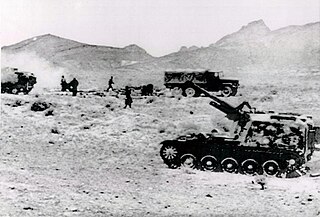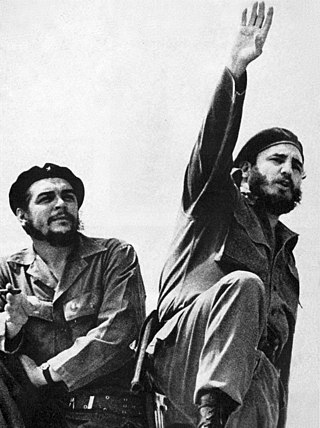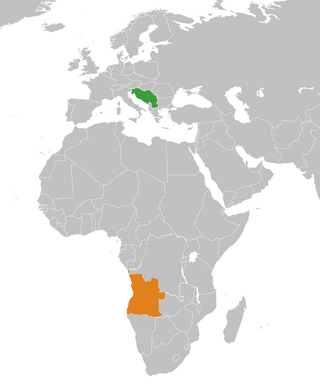Related Research Articles
The island of Cuba was inhabited by various Native American cultures prior to the arrival of the explorer Christopher Columbus in 1492. After his arrival, Spain conquered Cuba and appointed Spanish governors to rule in Havana. The administrators in Cuba were subject to the Viceroy of New Spain and the local authorities in Hispaniola. In 1762–63, Havana was briefly occupied by Britain, before being returned to Spain in exchange for Florida. A series of rebellions between 1868 and 1898, led by General Máximo Gómez, failed to end Spanish rule and claimed the lives of 49,000 Cuban guerrillas and 126,000 Spanish soldiers. However, the Spanish–American War resulted in a Spanish withdrawal from the island in 1898, and following three and a half years of subsequent US military rule, Cuba gained formal independence in 1902.

Cuba's foreign policy has been fluid throughout history depending on world events and other variables, including relations with the United States. Without massive Soviet subsidies and its primary trading partner, Cuba became increasingly isolated in the late 1980s and early 1990s after the fall of the USSR and the end of the Cold War, but Cuba opened up more with the rest of the world again starting in the late 1990s when they have since entered bilateral co-operation with several South American countries, most notably Venezuela and Bolivia beginning in the late 1990s, especially after the Venezuela election of Hugo Chávez in 1999, who became a staunch ally of Castro's Cuba. The United States used to stick to a policy of isolating Cuba until December 2014, when Barack Obama announced a new policy of diplomatic and economic engagement. The European Union accuses Cuba of "continuing flagrant violation of human rights and fundamental freedoms". Cuba has developed a growing relationship with the People's Republic of China and Russia. Cuba provided civilian assistance workers – principally medical – to more than 20 countries. More than one million exiles have escaped to foreign countries. Cuba's present foreign minister is Bruno Rodríguez Parrilla.

The Guinea-Bissau War of Independence, also known as the Bissau-Guinean War of Independence, was an armed independence conflict that took place in Portuguese Guinea from 1963 to 1974. It was fought between Portugal and the African Party for the Independence of Guinea and Cape Verde, an armed independence movement backed by Cuba, the Soviet Union, Yugoslavia and Brazil. The war is commonly referred to as "Portugal's Vietnam" because it was a protracted guerrilla war which had extremely high costs in men and materiel and which created significant internal political turmoil in Portugal.

The Sand War was a border conflict between Algeria and Morocco fought from September 25 to October 30, 1963, although a formal peace treaty was not signed until February 20, 1964. It resulted largely from the Moroccan government's claim to portions of Algeria's Tindouf and Béchar provinces. The Sand War led to heightened tensions between the two countries for several decades.
The Battle of Cuito Cuanavale was fought intermittently between 14 August 1987 and 23 March 1988, south and east of the town of Cuito Cuanavale, Angola, by the People's Armed Forces for the Liberation of Angola (FAPLA) and Cuba against South Africa and the National Union for the Total Independence of Angola (UNITA) during the Angolan Civil War and South African Border War. The battle was the largest engagement of the Angolan conflict and the biggest conventional battle on the African continent since World War II. UNITA and its South African allies defeated a major FAPLA offensive towards Mavinga, preserving the former's control of southern Angola. They proceeded to launch a failed counteroffensive on FAPLA defensive positions around the Tumpo River east of Cuito Cuanavale.
Víctor Emilio Dreke Cruz is a Cuban Communist Party leader of African descent, and a former commander in the Cuban Revolutionary Armed Forces.

Operation Savannah was the South African code name for their military incursion into Angola in 1975–1976. It was part of the South African Border War and arose due to the Angolan War of Independence. The operation also materially influenced the subsequent Angolan Civil War. South African forces invaded deep into Angola with the objective of driving the MPLA, Soviet and Cuban forces out of southern Angola so as to strengthen the position of UNITA, the main opponent of the MPLA and an ally of South Africa.

The Caribbean Legion was a group of progressive Latin American leaders, exiles, and revolutionaries in the 1940s. They aimed to overthrow dictatorships across Central America and replace them with democratic governments.

Cuba, officially the Republic of Cuba, is an island country, comprising the island of Cuba, Isla de la Juventud, and 4,195 islands, islets and cays surrounding the main island. It is located where the northern Caribbean Sea, Gulf of Mexico, and Atlantic Ocean meet. Cuba is located east of the Yucatán Peninsula (Mexico), south of both Florida and the Bahamas, west of Hispaniola, and north of Jamaica and the Cayman Islands. Havana is the largest city and capital. Cuba is the third-most populous country in the Caribbean after Haiti and the Dominican Republic, with about 10 million inhabitants. It is the largest country in the Caribbean by area.

After the establishment of diplomatic ties with the Soviet Union after the Cuban Revolution of 1959, Cuba became increasingly dependent on Soviet markets and military aid and was an ally of the Soviet Union during the Cold War. In 1972 Cuba joined the Council for Mutual Economic Assistance (Comecon), an economic organization of states designed to create co-operation among the communist planned economies, which was dominated by its largest economy, the Soviet Union. Moscow kept in regular contact with Havana and shared varying close relations until the end of the Soviet Union in 1991. Cuba then entered an era of serious economic hardship, the Special Period.

The Cuban Democracy Act (CDA), also known as the Torricelli Act or the Torricelli-Graham Bill, was a bill introduced and sponsored by U.S. Congressman Robert Torricelli and aimed to tighten the U.S. embargo on Cuba. It reimplemented the ban of U.S. subsidiaries in other countries from trading with Cuba, hindered the ability for ships docked within Cuban ports to travel to U.S. ports, and worked to circumvent other aspects of the embargo to provide humanitarian aid to Cuba in an attempt to draw the Cuban people closer to the United States.

Angola and the United States have maintained cordial diplomatic relations since 1993. Before then, antagonism between the countries hinged on Cold War geopolitics, which led the U.S. to support anti-government rebels during the protracted Angolan Civil War.
Osmany Cienfuegos Gorriarán is a Cuban politician and older brother of Camilo Cienfuegos. He has served in various roles in the Cuban government.

The Cuban intervention in Angola began on 5 November 1975, when Cuba sent combat troops in support of the communist-aligned People's Movement for the Liberation of Angola (MPLA) against the pro-western coalition of the National Union for the Total Independence of Angola (UNITA) and the National Liberation Front of Angola (FNLA). The intervention came after the outbreak of the Angolan Civil War, which occurred after the former Portuguese colony was granted independence after the Angolan War of Independence. The civil war quickly became a proxy war between the Eastern Bloc, led by the Soviet Union and the Western Bloc, led by the United States. South Africa and the United States backed UNITA and the FNLA, while communist nations backed the MPLA.

Jorge Risquet Valdés-Saldaña was a Cuban revolutionary and politician. He participated in the Sierra Maestra guerrilla campaign during the Cuban Revolution and became later involved in the Angola Civil War. He also participated in peace negotiations between Angola and South Africa, which led to the independence of Namibia and contributed to the release of Nelson Mandela and the end of apartheid. He was member of the Politburo of the Communist Party of Cuba from 1980 to 1991.

Cuba intervened into numerous conflicts during the Cold War. The country sent medical and military aid into foreign countries to aid Socialist governments and rebel groups. These interventionist policies were controversial and resulted in isolation from many countries. Due to the ongoing Cold War, Cuba attempted make allies across Latin America and Africa. Cuba believed it had more freedom to intervene in Africa as the U.S. was more concerned about Latin America. Still, the US was strongly opposed to Cuban involvement in Africa and continued Cuban intervention was a major source of tension. Cuban intervention was often confidential and all Cuban doctors and soldiers were forced to keep their location confidential.

Africa–Soviet Union relations are the diplomatic, political, military, and cultural relationships between the Soviet Union and Africa from the 1945 to 1991. The Soviets took little interest until the decolonisation of Africa of the 1950s and early 1960s which created opportunities to expand their influence. Africans were not receptive to the Soviet model of socio-economic development. Instead, the Soviets offered financial aid, munitions, and credits for purchases from the Soviet bloc, while avoiding direct involvement in armed conflicts. Temporary alliances were secured with Angola and Ethiopia. The 1991 dissolution of the Soviet Union left its successor state, Russia, with greatly diminished influence.

Angola–Yugoslavia relations were historical foreign relations between Angola and now split-up Socialist Federal Republic of Yugoslavia. During the Cold War both countries actively participated in the work of the Non-Aligned Movement.
Cuba and Nicaragua established diplomatic ties on 3 September 1905. Relations between the two countries were particularly positive during Nicaragua's initial Sandinista period and have been strong since the 2007 election of Daniel Ortega in Nicaragua.
References
- 1 2 "SAIS Faculty » Piero Gleijeses". sais-jhu.edu. Archived from the original on 14 December 2012. Retrieved 15 April 2013.
- 1 2 "Piero Gleijeses: 2005 Fellow, U.S. History". gf.org. Archived from the original on 4 May 2013. Retrieved 15 April 2013.
- ↑ Piero Gleijeses (October 2013). "Introduction to CWIHP e-Dossier No. 44". wilsoncenter.org . Retrieved 21 October 2013.
- ↑ Kenneth Maxwell (2002). "Review: Conflicting Missions by Piero Gleijeses; The African Dream by Ernesto Che Guevara, Patrick Camiller". Foreign Affairs . 81 (1): 218. JSTOR 20033044.
- ↑ Jorge I. Dominguez (2003). "Review: Conflicting Missions by Piero Gleijeses". Journal of Cold War Studies . 5 (3): 135–137. doi:10.1162/jcws.2003.5.3.135. S2CID 153190696.
- 1 2 "Robert H. Ferrell Book Prize » Recent Winners". shafr.org. Archived from the original on 21 September 2013. Retrieved 15 April 2013.
- ↑ Ned Sublette (19 December 2012). "Piero Gleijeses: The Hip Deep Essential Interview". afropop.org. Archived from the original on 17 May 2014. Retrieved 15 April 2013.
- ↑ "Authors » Piero Gleijeses". foreignaffairs.com. 28 January 2009. Retrieved 15 April 2013.
- ↑ "Contributors » Piero Gleijeses". lrb.co.uk . Retrieved 15 April 2013.
- 1 2 Gioia Minuti (19 August 2004). "Piero Gleijeses: a truly special Italian". Granma . Retrieved 15 April 2013.